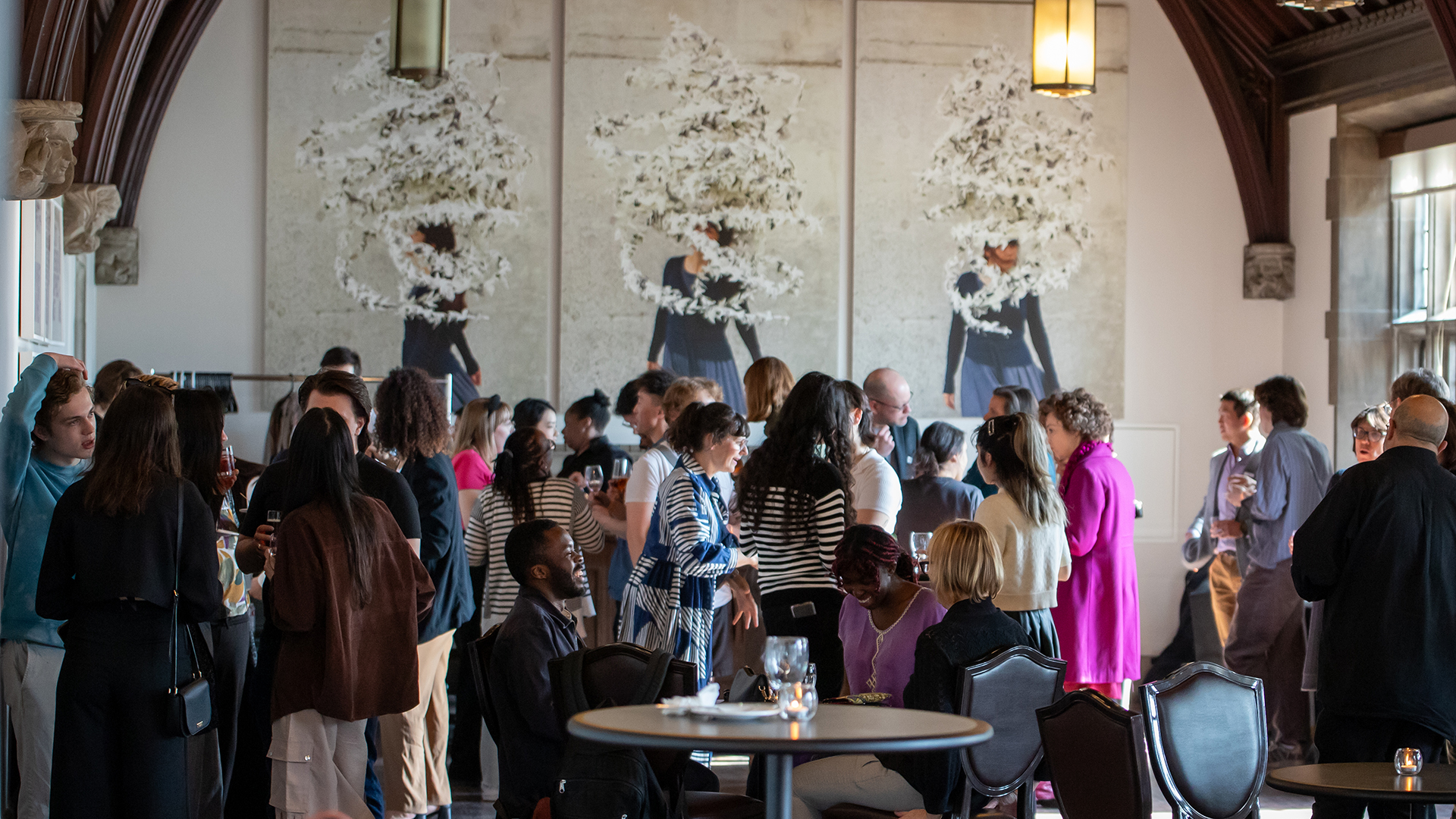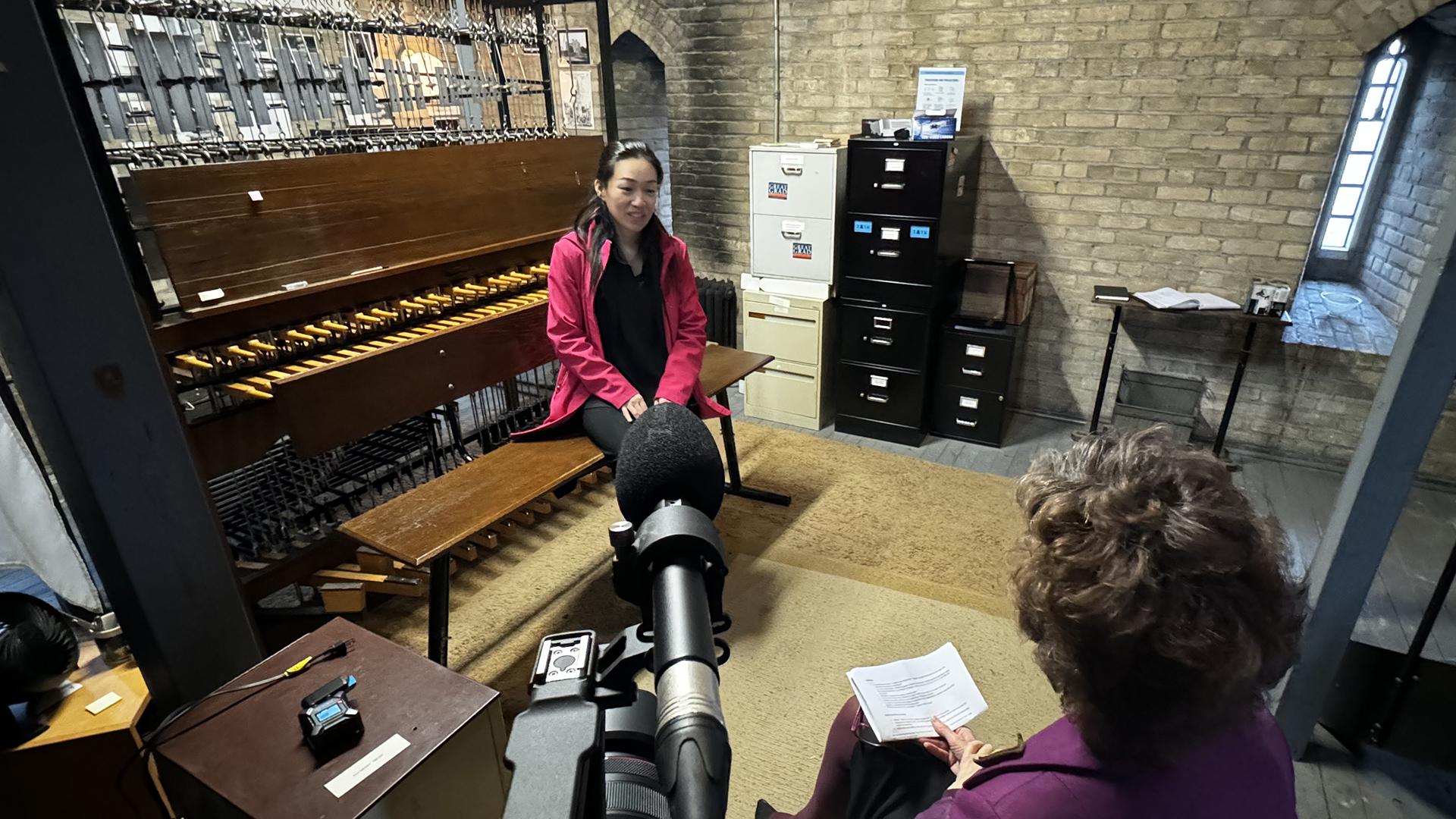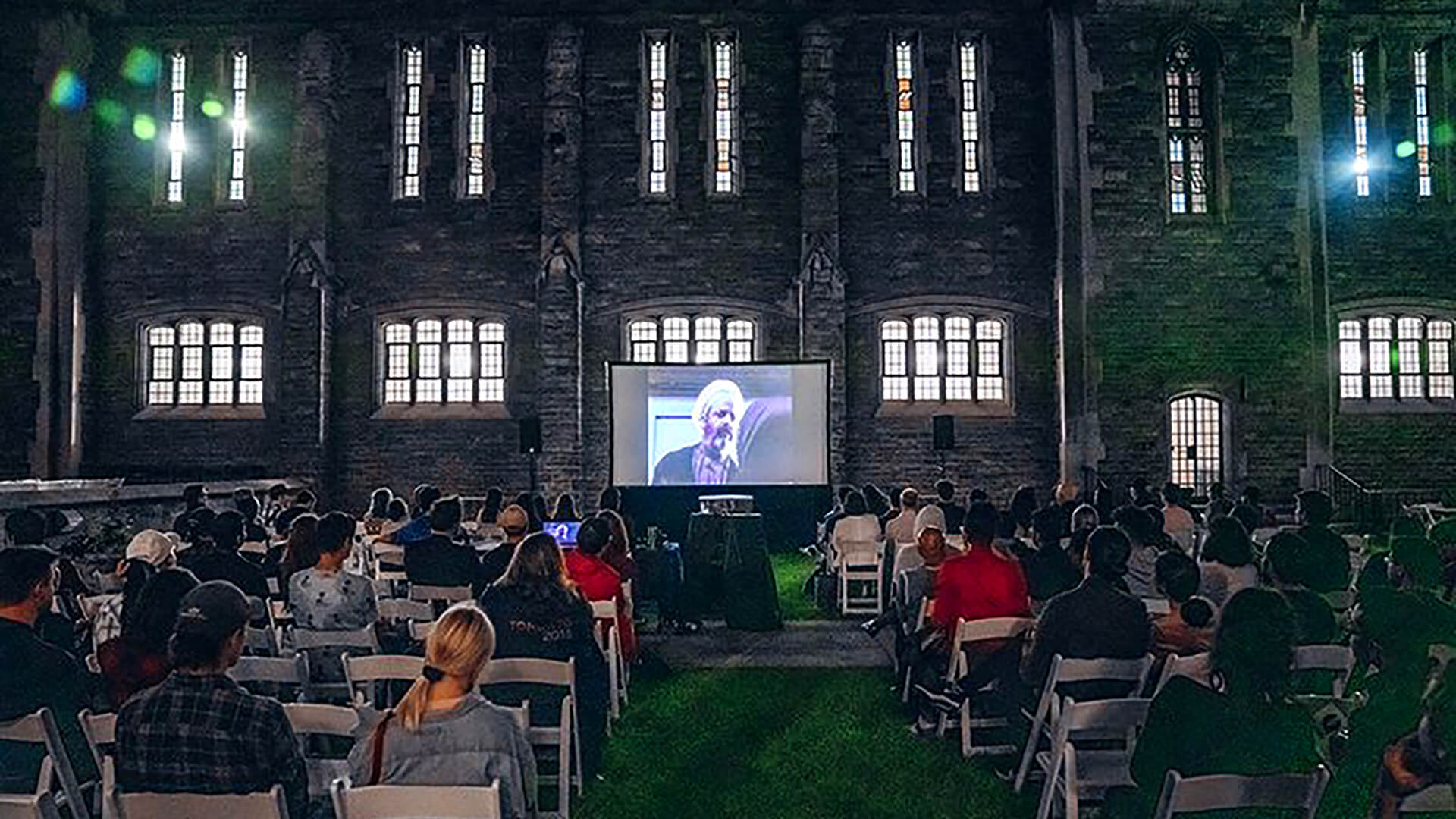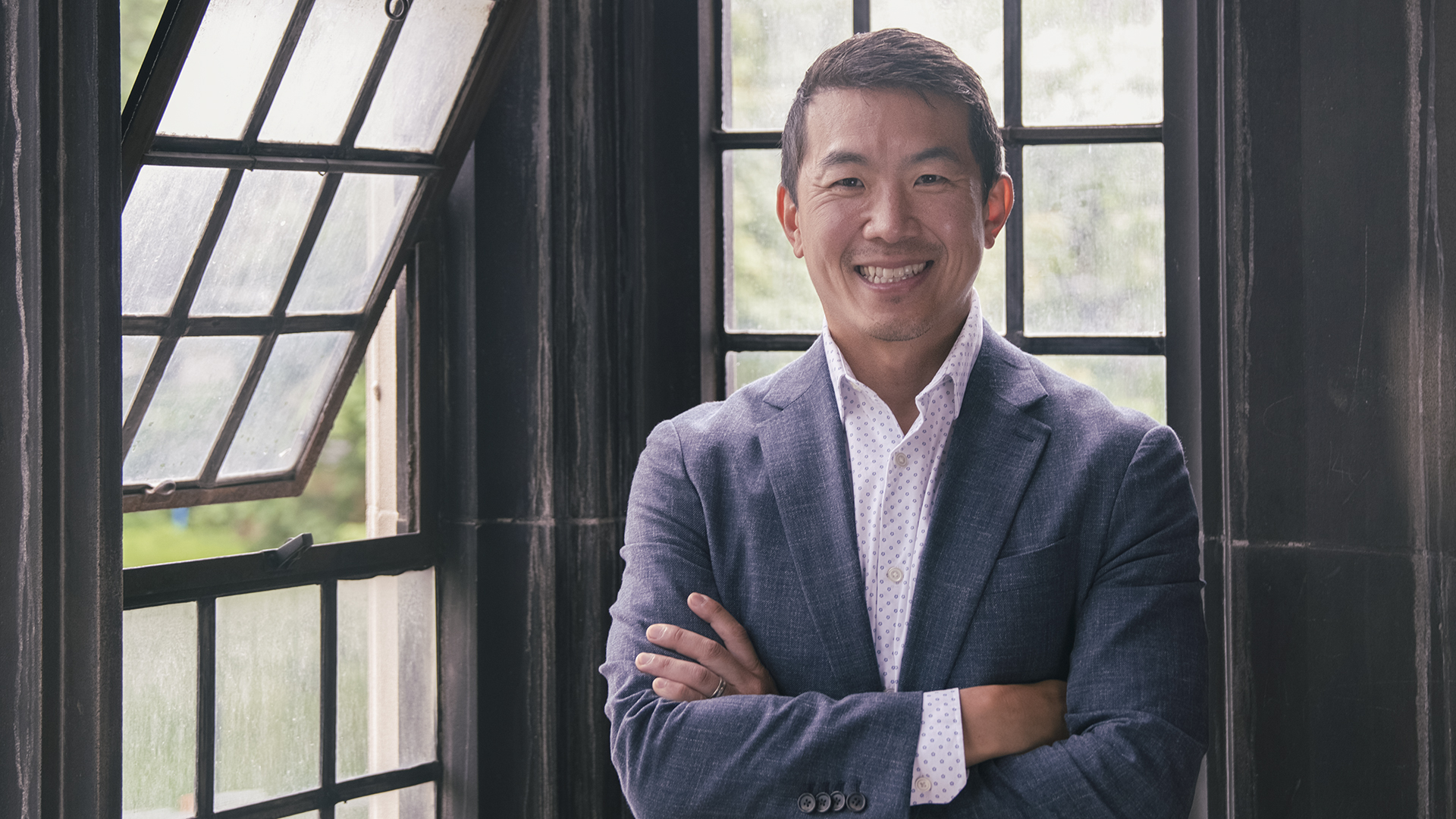I always wanted to go into the Foreign Service. That was my plan and that was why I pursued my undergraduate degree in International Relations at UofT.
But by the time I was holding an offer, I’d finished my postgrad studies at Dalhousie University and I had a good job, one I really enjoyed, working on international issues for the province of Ontario at a time when Ontario had large international offices in all of the world’s leading financial centres. So I decided to turn down the Foreign Service and remain a somewhat larger fish in a smaller provincial pond. It wasn’t long after I had made that decision, though, that the Premier closed all of Ontario’s international offices as a cost-cutting measure. For me, that was a great life lesson: if you want to make God laugh, tell him you’ve got plans. And then learn to pivot.
Giving career advice is a huge responsibility. But if a student walked into my office and asked, I would say, “Keep as many options open as possible. Don’t over-prepare and overspecialize too early in life. Because you need to prepare yourself for the potential of total surprise. You never know what will be the deciding factor that enables you to receive an opportunity.”
Now obviously, as you go through your university years, the timetable requires you to start selecting courses. Nonetheless, when specialization does happen, it’s all the more important for students to be involved in a place like Hart House. A place that enables them to supplement their academic education with the other essential elements like having courageous conversations with people who disagree with them about all sorts of issues, or conversations about topics that have nothing to do with their field of study. Expose yourself to new ideas, new opportunities, so that you’re as well-rounded a person as possible and you can present yourself to the world as somebody who has a really strong set of soft skills. Regardless of what your transcript says, ultimately what’s going to be more important in life is that you can adapt to different situations, that you can facilitate conversations, that you can introduce yourself to strangers, and make them feel welcome, and that you can create new alliances. These are soft skills, and I think it’s soft skills that actually open people up to new opportunities.
I’d always been interested in going to law school, but I was intimidated because I didn’t really know any lawyers growing up and because I used to think only smart people could study law. But I was inspired by a few people, including the first Canadian woman on the Supreme Court of Canada, Bertha Wilson. She was a mature student and she went into law school to finish her education, not really thinking she’d become the superstar lawyer she did and a major jurist in Canadian legal history. So I got into law school, and then I was terrified. It’s a five-year commitment overall, and I was 31. And I spoke with this associate of mine who was a lawyer, a woman called Pearl Eliadis who later went to work at the Ontario Human Rights Commission. We went out for drinks in Yorkville, and I said to her, “I’ll be 36 by the time I’m actually practicing law.” And she leaned forward and said, “So here’s the thing. God willing, you’ll be 36 anyway. So you can either be 36 and practicing law, or be 36 and say, ‘I should’ve gone to law school.’”
I acknowledge that I’ve had huge privilege. Systemic privilege and situational privilege. I’m a man. I’m a white man. I’m a physically able white man. I was born and raised in North America. I don’t come from a wealthy family, but I never worried about food on my table. When I was younger, I could even pass for straight. So I had all sorts of privilege. And a lot of that often goes unnoticed and unrecognized. That’s unfortunate, because it’s really important for everyone to be aware of the kind of privilege that they’re born with or acquire through nothing they’ve done. Not to apologize for it, and not necessarily give it up. But it’s particularly essential to acknowledge it.
And one of the things we need to acknowledge at Hart House, and prepare for, is that not all U of T students are equally privileged. Some will have to travel for an hour and a half each way just to get to campus. Others are the first in their family to go to university. Many have huge debt loads. And it matters so much to those students, because in their mind they have one shot at changing their situation. We have to understand that. But we also have to encourage those students, to the extent possible, even with those challenges, to look for whatever opportunity they can find, within the constraints of their schedules, to be as well rounded as possible.
I’m really hoping during my time at Hart House that we will build upon the great legacy of this place. I’m not here to fix anything that is not broken. There is so much good here. It is a tremendous institution. It’s had to evolve and it has to continue to do that. I want to be able to point to very concrete examples of this being a place where collaboration is practiced and demonstrated. I want it to be an inclusive place, where different voices are not only welcome but also sought out. Where different opinions are embraced, where people are taught and given the opportunity to navigate different perspectives, not necessarily to debate them but to have respectful, constructive dialogue.
Inclusivity is a whole set of practices that is now essential in the world beyond university. So we’re not doing our job if we don’t inculcate in our stakeholders and in particular our students a deep understanding of what inclusivity means. Hart House is also a place to develop more connected citizens, more giving citizens, more engaged citizens, where we’re in conversation with the city and the province and the world. I’d love to create more mentoring opportunities, create a Hart House mentoring program that specifically helps match students with our senior alumni and our senior members. Our art gallery and theatre are huge assets, and I’d love for them to be even more integrated into the programming we do.
In five years, I want the creative contributions of Hart House to people’s lives to be undeniable. And I want us to be caring. A place that really encourages kindness and patience and compassion, where students that have this impulse to give back to the world can do so.
Books I Love
- All the Light We Cannot See, Anthony Doerr. Breathtaking book.
- Fall on Your Knees, Ann-Marie MacDonald. One of my favourite authors. Some of her books have been life-changing for me.
- A Fine Balance, Rohinton Mistry. Its structure is just masterful.
- Camilla Gibb, Barbara Gowdy, Lawrence Hill, Vikram Seth, Vincent Lam, Arundhati Roy, Jamaica Kincaid— each of them is my favourite author at any given point in time.
Why I Write
One of the things I do for my own sanity and enjoyment, and kind of pathetically, to make myself laugh, is I continue to write.
How Improv can Improve your Life
The basic principle of improvisational comedy is that you say “yes” to everything. If the first character comes on stage and says, “Wow, what a wonderful morning here on Mars,” and the next character says, “Mars! What are you talking about? We live on Earth!” everything stops. We have nowhere to go. But if the next character says, “Yeah, but the condo fees are too high,” maybe that’s not a brilliant response, but at least you have something to build on. So you have to say yes to everything.
Every idea, you say yes. If you say no you shut it down. That’s a great lesson for life. But you don’t just say yes and leave it. You say, “Yes, and.” If you have an opportunity to say, “Yes, and we could also do this and do this and do this,” you keep the door open for the exchange of ideas, for more dynamic end results. You don’t want to shut people off right away. If you approach every moment, every exchange, as a “yes, and” moment, it’s just far more conducive to success.




